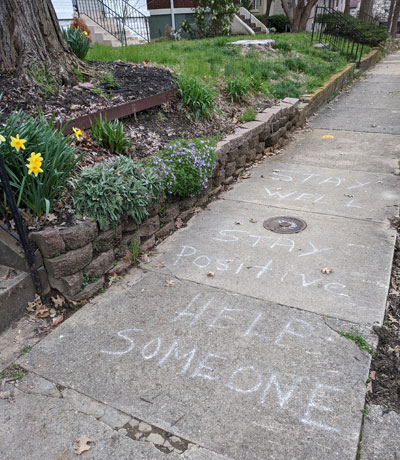
Each day brings new changes to daily life that would have been unthinkable a month ago, a week ago or even yesterday. In ordinary times, about half of us will experience a diagnosable mental health condition at some point in life, according to the Center for Disease Control (CDC). In the extraordinary circumstances of a global pandemic, we are coping with prolonged stress, profound losses, and trauma. Based on past epidemics, health experts predict a wave of mental health impacts.
Some of the many people on the emotional front lines of COVID-19:
- Front-line health workers, first responders, caregivers and other essential workers.
- People who become severely ill and their loved ones.
- Loved ones separated during quarantine, hospitalization, and at the end of life.
- People most at risk of serious illness or death from COVID-19.
- People who lose livelihoods, lack healthcare access, risk losing homes, are food insecure.
- People with limited access to social connection and support.
- Children at home with parents unable to meet their physical and/or emotional needs.
- Parents juggling jobs with childcare and home-schooling.
- Couples whose relationships are strained by the added stress.
- Pre-existing exposure to chronic stress and trauma is compounded for people of color already living with the impact of racism who are now disproportionately dying from COVID-19 or being blamed for the virus, also for adults and children who were already lacking secure access to food, shelter, and health care before the pandemic.
Many excellent resources are available to help us cope with the emotional impact of the pandemic and to support our resilience. This is a curated list gathered from trusted sources and grouped by category:
Many grace and peace be with us all,
Donna Miller, PsychD
Associate for Mental Health Ministry